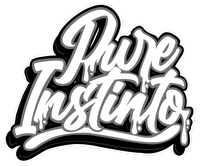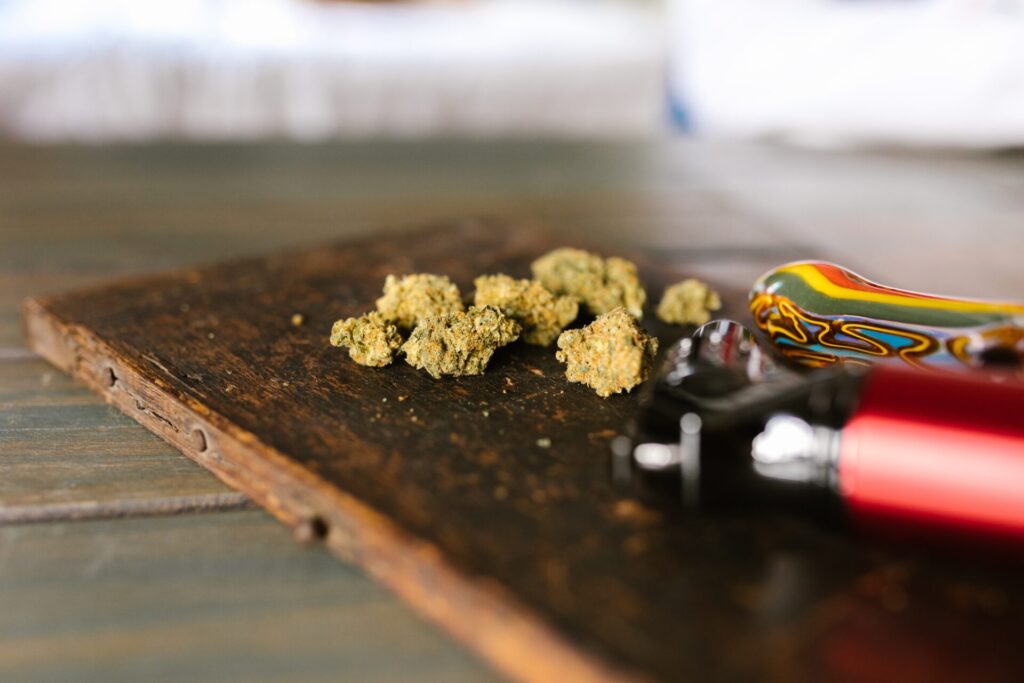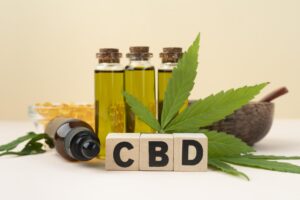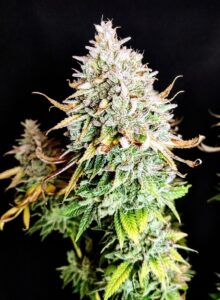Pure Instinto - Cultivation Guide
Beyond the High: Unraveling the Potential of CBD and THC
Beyond the High: Unraveling the Potential of CBD and THC
1.What is CBD?
2.What is THC?
3.CBD vs. THC: Key Differences
4.Potential Benefits of CBD
5.Potential Benefits of THC
6.Using CBD and THC Together
7.Common Misconceptions
Introduction:
In the realm of holistic wellness, CBD and THC have risen to prominence. This article delves into the intricate world of these cannabinoids, shedding light on their properties, differences, and potential benefits. Whether you’re new to the subject or seeking a deeper understanding, this comprehensive guide has you covered.
-
What is CBD?

Image by Freepik
CBD, short for cannabidiol, is a non-intoxicating compound found in the cannabis plant. It’s revered for its potential therapeutic effects without the psychoactive “high” associated with its counterpart, THC. CBD interacts with the endocannabinoid system, which regulates various physiological functions, leading to potential benefits such as stress reduction, pain relief, and improved sleep.
-
What is THC?
THC, or delta-9-tetrahydrocannabinol, is another prominent cannabinoid in cannabis. Unlike CBD, THC is known for its psychoactive properties, inducing the euphoric sensation commonly associated with marijuana use. It also has potential therapeutic effects, including pain and nausea relief, though its psychoactive nature restricts its use in certain scenarios.
-
CBD vs. THC: Key Differences
CBD and THC vary in their effects and legal status. CBD is widely available and legal in many places, while THC’s legality depends on local regulations. Additionally, CBD offers potential wellness benefits without altering one’s mental state, whereas THC’s psychoactivity can impair cognitive function temporarily
-
Potential Benefits of CBD
CBD’s therapeutic potential spans a wide range, including anxiety reduction, anti-inflammatory effects, and even seizure management. Research suggests it may help manage various conditions, making it a popular choice among those seeking alternative remedies.
-
Potential Benefits of THC
THC’s psychoactive effects can provide relief from pain, nausea, and even stimulate appetite. It’s used medicinally in certain cases, especially for patients undergoing chemotherapy or dealing with chronic pain. However, its psychotropic effects limit its widespread use.
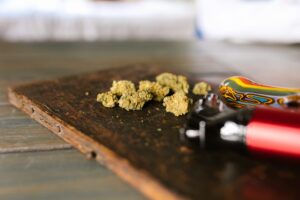
-
Using CBD and THC Together
Combining CBD and THC can lead to the “entourage effect,” where their synergy enhances therapeutic outcomes. Balanced ratios of both cannabinoids are used in some medical treatments, offering a holistic approach to wellness.
-
Common Misconceptions
Misinformation surrounds CBD and THC. It’s essential to debunk myths, such as the assumption that CBD is always non-psychoactive. Understanding these misconceptions ensures informed decision-making.
Frequently Asked Questions (FAQs):
Q1: Can CBD get you high?
No, CBD cannot get you high. Unlike THC (tetrahydrocannabinol), another compound found in cannabis, CBD is non-psychoactive. It does not produce the euphoric or intoxicating effects typically associated with marijuana use.
Q2: Is THC always illegal?
No, THC is not always illegal. The legality of THC depends on the jurisdiction and its regulations. In some places, both medical and recreational use of THC is legal, while in others, it remains entirely illegal. It’s essential to check local laws and regulations to determine THC’s legal status in a specific area.
Q3: How does CBD help with anxiety?
CBD may help with anxiety by interacting with the body’s endocannabinoid system, which plays a role in regulating mood and stress responses. CBD is believed to reduce anxiety by influencing receptors in the brain, such as the serotonin receptor. It may also help by reducing physiological symptoms of anxiety, like an increased heart rate.
Q4: What’s the entourage effect?
The entourage effect refers to the synergistic interaction of various compounds found in the cannabis plant, such as cannabinoids, terpenes, and flavonoids. These compounds work together to enhance the therapeutic effects of each other when used in combination. For example, CBD and THC may have more significant effects when taken together than when used separately.
Q5: Can CBD and THC replace traditional medicine?
While CBD and THC have shown promise in managing certain medical conditions, they cannot replace traditional medicine entirely. Their use should be viewed as complementary or alternative therapies, depending on the individual’s specific condition and medical advice. Always consult with a healthcare professional before making any decisions about replacing traditional medicine with cannabinoids.
Conclusion
In the dynamic landscape of CBD and THC, knowledge is power. Armed with insights into their differences and potential benefits, you’re better equipped to make informed choices for your well-being journey.
